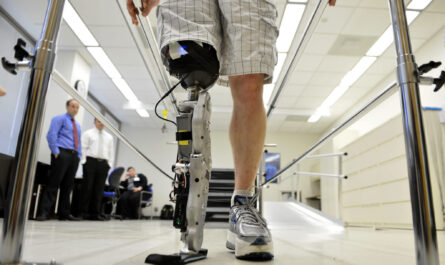Scientists at the University of Michigan Health Rogel Cancer Center have made a breakthrough in understanding why immune-based cancer treatment can lead to severe gastrointestinal problems. By identifying the mechanism responsible for colitis, the team was able to develop a way to deliver the cancer-killing impact of immunotherapy without the unwanted side effect. The findings of the study were published in Science.
Immunotherapy has emerged as a promising treatment for various types of cancer. However, immune checkpoint inhibitors used in this form of treatment can have severe side effects, including colitis, which is inflammation in the digestive tract. Colitis can cause significant gastrointestinal discomfort and, in some cases, patients may even discontinue their cancer treatment because of it.
The challenge facing researchers was that laboratory mice were not developing colitis, even though patients were. This made it impossible to study and understand the cause of this side effect. To overcome this hurdle, the Rogel team, led by first author Bernard C. Lo, Ph.D., developed a new mouse model by injecting microbiota from wild-caught mice into the traditional mouse model.
In this newly created model, the mice did develop colitis after receiving antibodies used for tumor immunotherapy. This allowed researchers to trace back the mechanism responsible for the development of colitis. They discovered that colitis was a result of the composition of the gut microbiota, which caused immune T cells to be hyper-activated while deleting regulatory T cells that usually inhibit T cell activation in the gut.
Moreover, researchers found that this was happening within a specific domain of the immune checkpoint antibodies. By removing this domain, they observed a strong anti-tumor response without inducing colitis. The team also reanalyzed previously reported data from studies of human cells treated with immune checkpoint antibodies, confirming the role of regulatory T cells in inducing colitis.
Dr. Gabriel Nunez, the senior study author and Paul de Kruif Professor of Pathology at Michigan Medicine, highlighted the significance of their findings: “This is a good example of how understanding a mechanism helps you to develop an alternative therapy that’s more beneficial. Once we identified the mechanism causing colitis, we could then develop ways to overcome this problem and prevent colitis while preserving the anti-tumor effect.”
The antibody used to stop colitis in the study was developed by Takeda Pharmaceuticals. The Rogel team now plans to conduct further studies to gain a deeper understanding of the mechanisms behind colitis and seeks clinical partners to progress this knowledge into a clinical trial.
This research sheds light on the importance of gut microbiota in the development of colitis resulting from immune checkpoint inhibition. By identifying and addressing this mechanism, it may be possible to reduce or even eliminate the occurrence of colitis as a side effect of cancer immunotherapy, improving patient outcomes and treatment adherence.
*Note:
1. Source: Coherent Market Insights, Public sources, Desk research
2. We have leveraged AI tools to mine information and compile it



